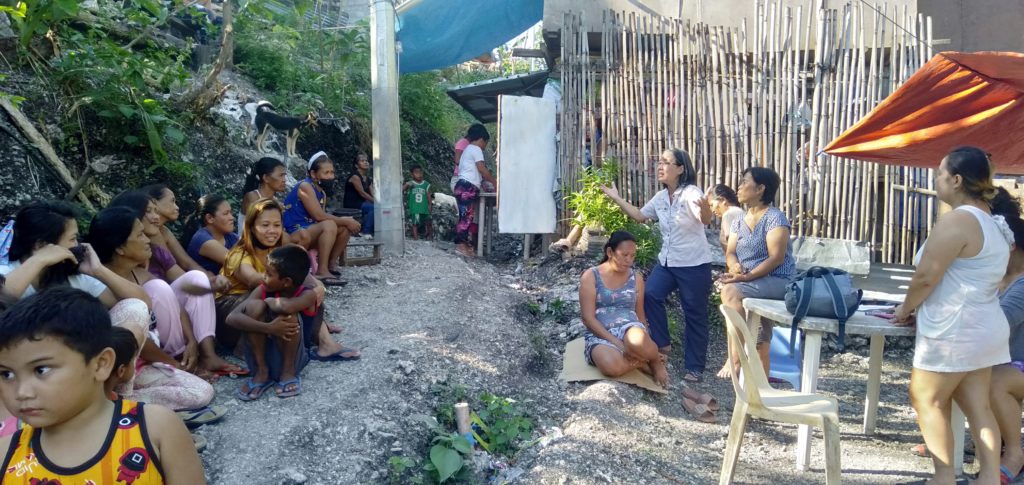A post-training monitoring workshop was held for members of the Barangay Health Emergency Response Teams (BHERTs) of Tabuelan last January 14, 2021.
There were two batches, one batch was held at the covered court in Kanlim-ao and the other batch at the covered court in Tigbawan. For the participants in Kanlim-ao, they came from Barangays Kantubaon, Kanluhangon, Kanlim-ao, Mabunao and Villahermosa. There were 40 participants in all. They were composed of barangay health workers (BHWs), barangay nutrition scholars (BNS), midwives, barangay councilors, barangay captains and tanods. For the participants in Tigbawan, there was a total of 11 participants from barangays Tabunok, Olivo, Tigbawan and Maravilla. They were composed of BHWs, BNS and barangay councilors.
As a background, BHERTS coming from nine barangays of Tabuelan were trained on COVID-19 response on September 8 and Oct. 19, 2020. They had their first post-training monitoring on November 9, 2020. Since then, they were expected to apply what they have learned during the training and there is a need to assess how much they have done so through another post-training monitoring activity.
The post-training monitoring determined the composition and functionality of the BHERTs, monitored their performance on navigating and listing of contacts, monitoring and reporting of close contacts, monitored their information dissemination of COVID-19 related issues and monitored how they had facilitated the delivery of continuity of access to essential health services during the COVID-19 pandemic.
The BHERTs were grouped into workshop groups and filled up a post-training monitoring tool, after which they presented their results in a plenary session.
Since it was already been 10 months since the lockdown started and eight months since the first case of COVID-19 was reported in Tabuelan, there had only been a total of 23 cases until the present. Each barangay has one BHERT with an average number of eight members or nine. All of the BHERTs said that they knew their roles on monitoring of close contacts of positive cases. They had also been involved in monitoring locally stranded individuals coming home from Negros Occidental.
They said that the training also enhanced their knowledge regarding COVID19 and why the health protocols are needed to stop its transmission. They had very well explained this to the residents in their barangays. They also disseminated information on COVID-19 to the communities and continued to exert efforts to deliver essential health services as barangay health workers and barangay nutrition scholars. To ensure this, the BHERT made use of texting and facebook messenger to deliver vital information about the virus and how the community can battle against it together. Face to face discussions were already done often unlike in the past when social gatherings were very limited. For essential services the BHERTs said that they performed TB-DOTS services, giving of medicines to the elderly, deworming of children, taking blood pressure of patients, weighing of infants for immunization, reminding mothers to have their babies immunized, reminding pregnant mothers to have their prenatal check up, and giving of ferrous sulfate to them. They actively participated in the health programs of the government. Some BHERTs also encouraged couples to avail of the family planning services and commodities in their rural health unit. It had been a normal situation already in Tabuelan, the BHERTs
The BHERTS said that there was still a need to reach out to more individuals and continue to extend services for the communities since the services in the health centers are already fully functioning. There are still people who are afraid to go to the health centers for fear of getting the virus. It is necessary to tell them that as long as they wear masks and do social distancing, they will not get the virus.



